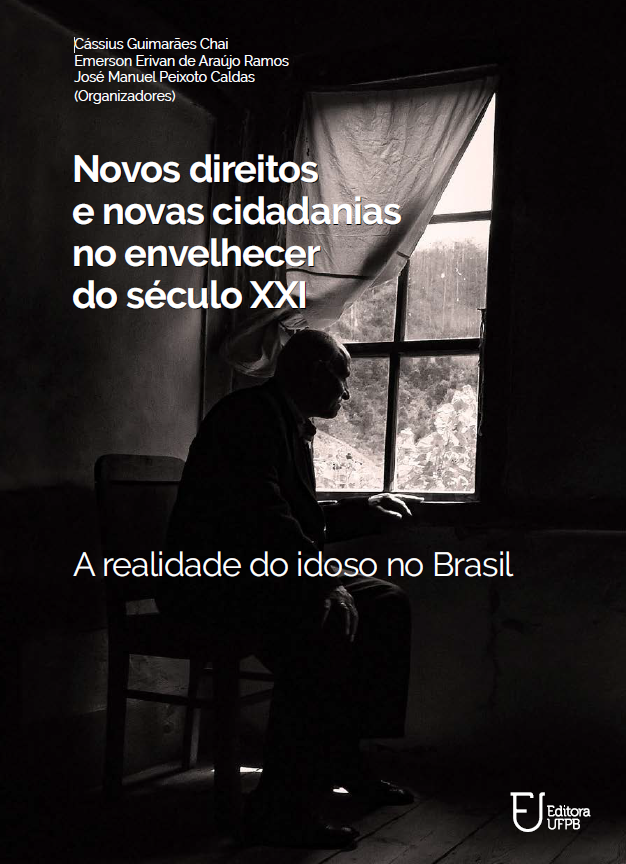Novos direitos e novas cidadanias no envelhecer do século XXI
a realidade do idoso no Brasil
Palavras-chave:
Direitos Humanos, Cidadania Pessoa IdosaResumo
A presente obra, forjada em muitas mãos, diversidade de olhares e multiplicidade de saberes, é retrato da brasilidade. De uma sociedade que precisa pensar o envelhecer, que se vê marcado nas rugas e desigualdades institucionalizadas do cotidiano em um isolamento social da pessoa sexagenária, agravado pelo distanciamento social neste contexto de pandemia que a todos abraça, a alguns estrangula, e aos mais vulneráveis socialmente, elimina. Organizada está em três sessões, Pensando as Instituições Jurídicas na Cidadania Sexagenária, Envelhecimento e Revolução 4.0, e Políticas De Saúde E Longevidade, nas quais as preocupações representadas, resultam em uma intertextualidade que se complementa no diálogo, nas críticas e nas demonstrações entre idealidades operativas institucionais e nas realidades concretas de uma vida severina da pessoa idosa. Os estudos aqui compartilhados discutem questões e indicam possibilidades, de uma aproximação lacaniana, em que se toma em consideração a existência da pessoa idosa, para em respeito a ela, elaborarem-se propostas à institucionalização de espaços, de práticas, de procedimentos, mas sobretudo, do reconhecimento estratégico com ações para a manutenção da integração social da pessoa idosa na sociedade, da perspectiva de uma atualização, não apenas semântica de direitos, mas no estabelecimento de novos direitos que atualizem a dignidade do ser humano idoso, dando-lhe vigor à sua cidadania. A obra coletiva, atendendo às exigências do edital, traz reflexões enfrentando os desafios de uma globalização permeada pela Revolução 4.0, e a transmutação das relações de trabalho e dos papéis sociais que se reorganizam no seu arrasto tecnológico, a fim de combater e minimizar os efeitos das exclusões sociais colaterais produzidos, como a ausência de novos meios de conexão e de relacionamentos sociais pelos fluxos e ambientes de comunicação da era digital, pensando a construção da subjetividade e da identidade constitucional da pessoa idosa.
Referências
ISBN-13 (15)
-65-5942-163-3

Downloads
Publicado
Como Citar
Edição
Seção
Licença
Copyright (c) 2022 Diálogos Críticos - ISSN 2238-3468

Este trabalho está licenciado sob uma licença Creative Commons Attribution-NonCommercial-NoDerivatives 4.0 International License.
Under the following terms:
-
Attribution — You must give appropriate credit, provide a link to the license, and indicate if changes were made. You may do so in any reasonable manner, but not in any way that suggests the licensor endorses you or your use.
-
NonCommercial — You may not use the material for commercial purposes.
-
NoDerivatives — If you remix, transform, or build upon the material, you may not distribute the modified material.
- No additional restrictions — You may not apply legal terms or technological measures that legally restrict others from doing anything the license permits.




 DOI. 10.55658
DOI. 10.55658 
